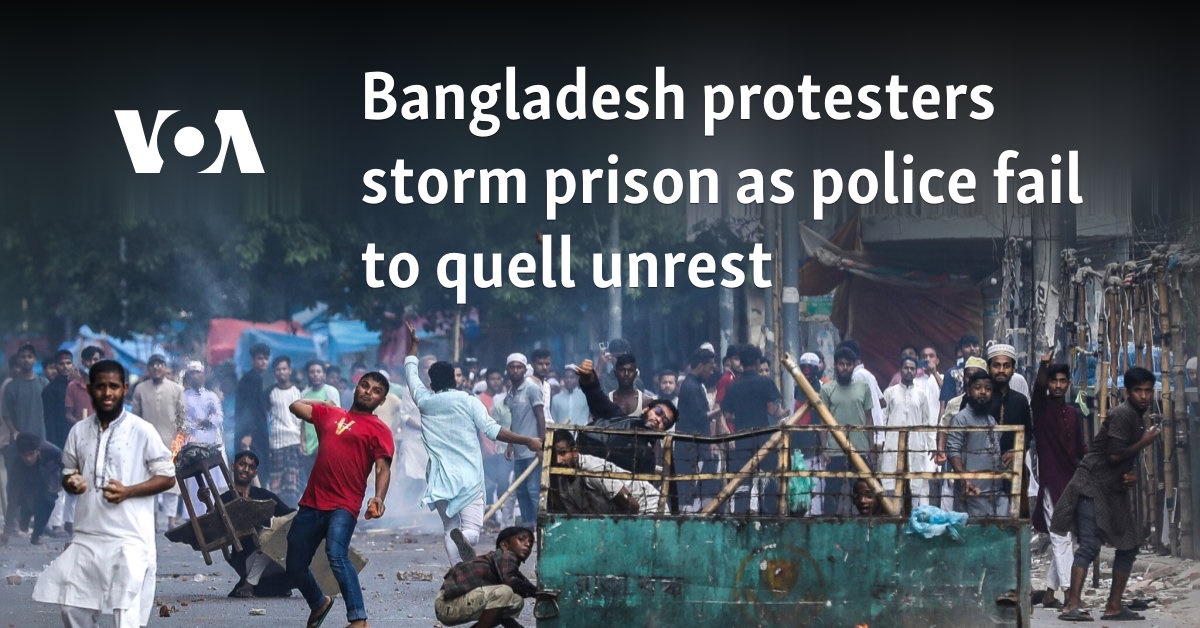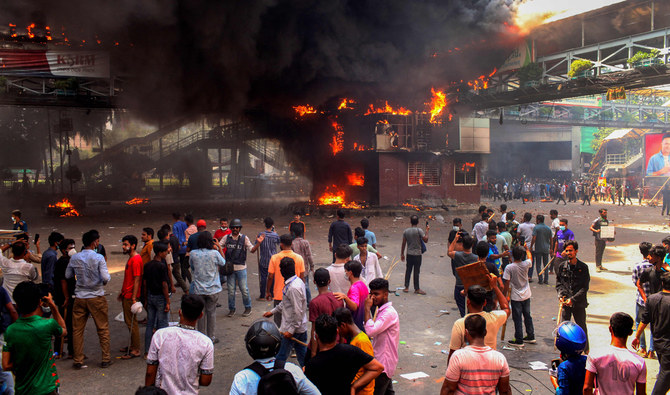– In a dramatic escalation of the ongoing unrest in Bangladesh, student protesters stormed a prison in the central district of Narsingdi on Friday, freeing hundreds of inmates and setting the facility on fire. This incident comes as the country grapples with widespread protests that have already resulted in at least 75 deaths, posing a significant challenge to Prime Minister Sheikh Hasina’s 15-year rule.
On July 19, 2024, the student protesters took their defiance to new heights by breaking into the Narsingdi jail. A police officer, speaking on condition of anonymity, confirmed the breach and stated, "I don't know the number of inmates, but it would be in the hundreds." The freed inmates, coupled with the prison fire, mark a severe escalation in the violence that has gripped the nation this week.
In response to the escalating violence, Dhaka's police chief, Habibur Rahman, announced an unprecedented ban on all public gatherings in the capital city. "We've banned all rallies, processions, and public gatherings in Dhaka today," Rahman told AFP. He emphasized that the move was necessary to ensure "public safety."
Despite the ban and an internet shutdown aimed at disrupting the organization of protests, large rallies continued to erupt across Dhaka. Clashes between protesters and police were reported in several parts of the sprawling megacity of 20 million people. The police’s efforts to disperse the crowds often turned violent, resulting in further injuries and chaos.
According to an AFP count based on reports from hospitals, the week of unrest has resulted in at least 75 deaths. Many of the victims were students who were caught in the violent confrontations between protesters and police. The scale of the casualties has heightened concerns about the government's ability to manage the crisis and restore order.
Despite the police ban on public gatherings and the violent crackdowns, protesters remained defiant. Sarwar Tushar, a student who joined a march in Dhaka, sustained minor injuries when police violently dispersed the crowd. "Our protest will continue," he told AFP, reflecting the determination of many young Bangladeshis to continue their fight for what they see as their rights and future.
Prime Minister Sheikh Hasina’s government has faced mounting criticism both domestically and internationally for its handling of the protests. Human rights organizations have condemned the excessive use of force by police and the decision to shut down the internet, which they argue is an attempt to stifle dissent and freedom of expression.
The government, however, has defended its actions, arguing that the measures are necessary to maintain law and order. Officials have accused the protesters of inciting violence and disrupting public safety, justifying the crackdowns as a means to restore calm.
The international community has been closely monitoring the situation in Bangladesh. Various countries and international organizations have expressed concern over the escalating violence and the government’s response. Calls for dialogue and restraint have been made, urging both the government and the protesters to seek a peaceful resolution to the crisis.
The situation in Bangladesh remains volatile, with no clear end in sight to the unrest. The student protests have exposed deep-seated frustrations among the youth and broader population regarding governance, economic opportunities, and civil rights. The government's ability to address these concerns and find a peaceful resolution will be crucial in determining the future stability of the country.
As the unrest continues, the focus will be on how Prime Minister Sheikh Hasina’s government navigates this critical juncture. The handling of the protests and the broader political response will likely have significant implications for Bangladesh's political landscape and its relations with the international community.
The storming of the prison in Narsingdi and the continued unrest in Dhaka highlight the severe challenges facing Bangladesh as it navigates this period of crisis. The government’s response, the protesters’ resilience, and the international community’s reaction will all play pivotal roles in shaping the outcome of this tumultuous period.







.jpg)




0 Comments
Post your comment here